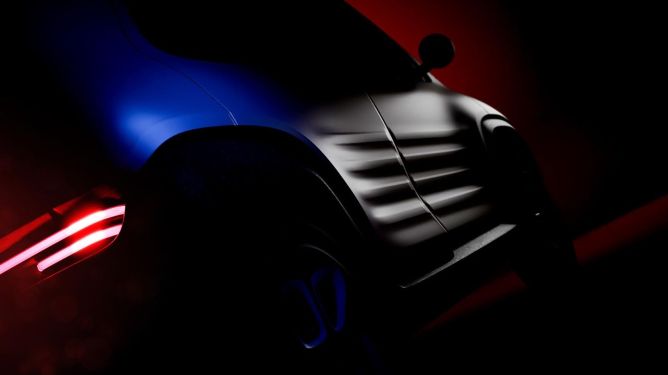Kate’s electric micro-cars raise $7.6 million

The Funding Round That Could Revolutionize Transportation
French startupKatehas raised a $7.6 million (€7 million) funding round from a group of business angels, marking an exciting step in its journey to redefine urban mobility. The company, which aims to challenge traditional car manufacturers by offering smaller, cheaper, and easier-to-maintain vehicles, has secured this investment to further develop its Kate K1 model.
The startup’s current portfolio includes Julien Lemoine (co-founder and CTO of Algolia), Emmanuelle Brizay (AC8 INVEST), Christophe Maurissen (MD at Alcogroup), and others who have shown confidence in Kate’s innovative vision. This round is a significant milestone for the company as it continues to refine its product and scale its operations.
Breaking Down the Investment
The $7.6 million funding round will be used to enhance production capabilities, expand distribution networks, and conduct further testing on the Kate K1. The startup plans to increase its workforce by 50% over the next year, aiming to ramp up manufacturing and delivery processes. This investment is expected to accelerate the company’s growth while maintaining high standards of quality and affordability.
Kate’s success so far has been remarkable. Since its inception, the company has built a reputation for innovation in the micro-car segment, offering vehicles that are not only cost-effective but also environmentally friendly. The funding will help Kate continue this trajectory and bring its vision to market on a larger scale.
The Kate K1: A Game-Changer in Urban Mobility
The Kate K1 is designed to redefine how people think about transportation in cities. This micro-car, which stands at an impressive 3 meters in length, offers a range of features that make it stand out from traditional vehicles:
-
Performance: The K1 boasts a maximum speed of 80 km/h (50 mph) and can travel up to 24 kilometers (15 miles) on a single charge. Its lightweight design ensures low fuel consumption, making it an eco-friendly option for urban commutes.
-
Affordability: Unlike many high-end electric vehicles, the K1 is designed to be accessible to a wide range of consumers. It offers competitive pricing while maintaining top-tier performance and comfort.
-
Design and Comfort: The interior features a sleek, ergonomic design with comfortable seats and ample storage space. The K1 also includes advanced safety features, such as automatic emergency braking and collision avoidance systems.
The Kate K1 is set to launch in late 2024, with initial production expected to begin early 2025. Pre-orders are already being taken, and the company has ambitious plans for global distribution.
Market Analysis: Why Kate Stands Out
Kate’s success can be attributed to its unique combination of affordability, performance, and innovative design. The micro-car segment is highly competitive, with existing players like Polestar and Netradyne vying for market share. However, Kate’s approach offers a refreshing alternative that appeals to both urban professionals and families looking for cost-effective transportation.
The company’s focus on sustainability is also a key factor in its success. By offering electric vehicles at an affordable price point, Kate aligns with the growing demand for eco-friendly options while keeping costs low for consumers.
Kate has also made significant strides in user experience. The company provides comprehensive online tools and resources to help potential buyers understand the benefits of the K1 model before committing to a purchase.
Timeline and Roadmap
Kate’s development roadmap is ambitious, with several milestones on its agenda:
- Q3 2024: Final testing phase for the Kate K1.
- End of 2024: Initial production launch in Europe, followed by North America and Asia in late 2025.
- Mid-2026: Expansion into larger vehicles with the introduction of the Kate Pro model.
The company is also exploring partnerships with EV manufacturers to streamline production and reduce costs further. This strategic approach will help Kate maintain its competitive edge as it expands its global footprint.
The Background of Romain Dillet
Romain Dillet, a prominent French tech journalist and founder of TechCrunch Europe, plays a crucial role in Kate’s success. His extensive experience in the automotive industry has given him unique insights into the challenges and opportunities facing the micro-car segment.
Dillet’s background as a tech reporter allows him to bring a fresh perspective toKate’s innovative approach. He has spent years covering the latest developments in electric vehicles, sustainability, and urban mobility trends, positioning Kate at the forefront of these advancements.
Dillet’s advocacy for small-scale transportation solutions aligns perfectly with Kate’s mission to challenge traditional automotive models. His role as an investor and brand ambassador ensures thatKate continues to grow and thrive on a global scale.
Conclusion
From raising a significant funding round to launching its groundbreaking K1 model, Kate has demonstrated a clear vision for the future of urban transportation. With its innovative design, affordability, and commitment to sustainability, the company is well-positioned to disrupt traditional automotive industries.
Romain Dillet’s leadership and investment inKate have further strengthened the startup’s position as a leader in the micro-car segment. As the K1 prepares for production, the world will be watching closely to see how this new entrant can reshape the industry.
For those interested in staying ahead of the curve in transportation technology, Kate is an essential watch. With its forward-thinking approach and commitment to innovation, the company is poised to become a household name in the coming years.